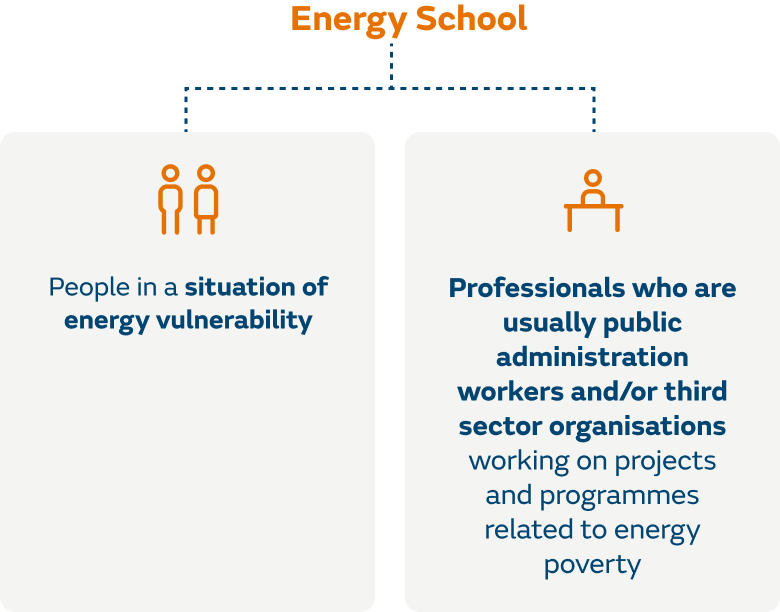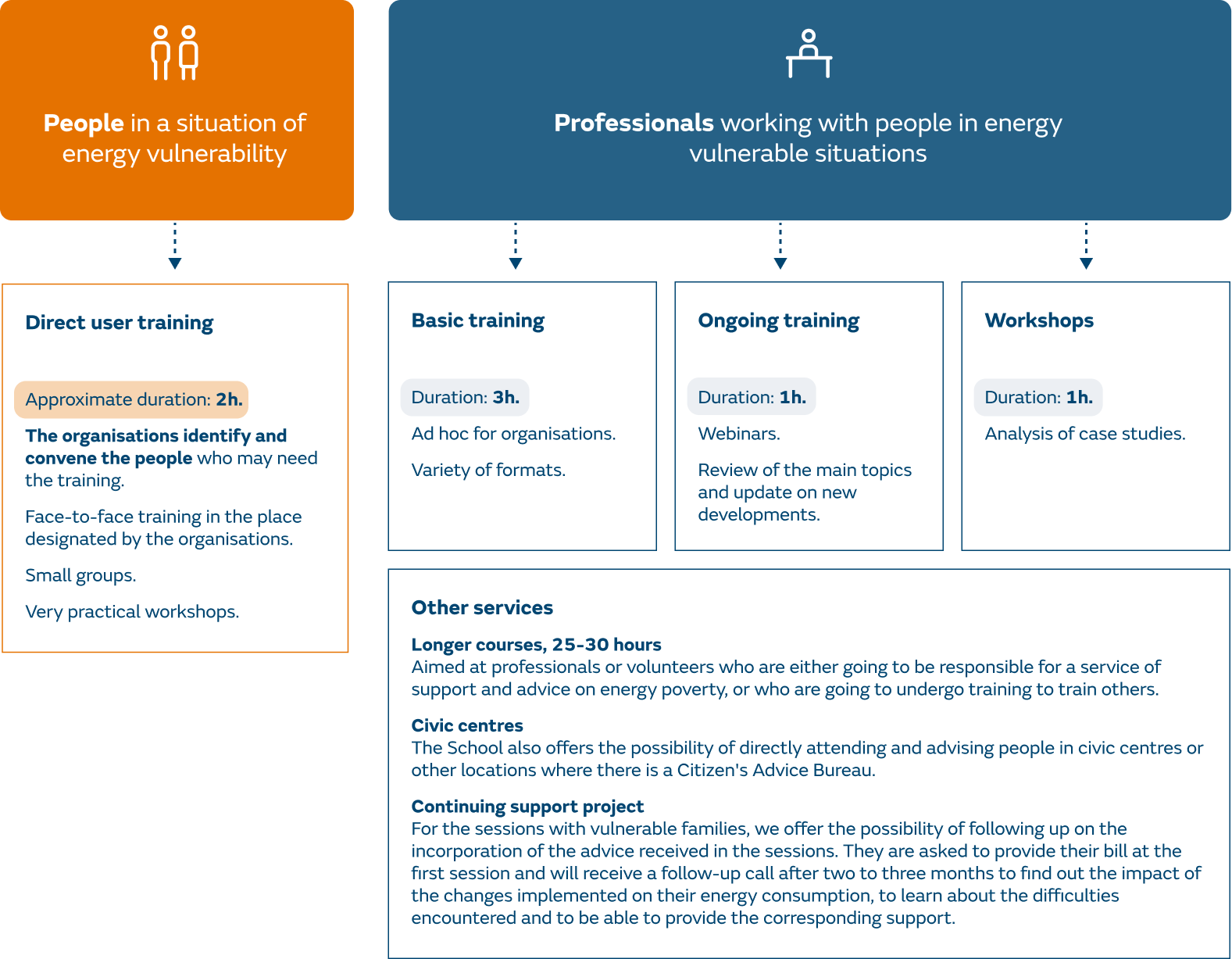













The school in numbers
December 2023 (data accumulated since 2017):
Trainings
Almost 3,000 trainings (68% families and 32% professionals).

People
35,000 people trained.
Municipalities
More than 700 municipalities visited across Spain.
Webinars
45 webinars and 4,100 attendees to ensure continuous training.

Savings
Between €160 and €200/year average savings in energy consumption of the people attending the sessions.
Who can benefit from the offer?
We have two distinct audiences:

Who can benefit from the offer?
We have two distinct audiences:

Training services to...

Training services to...


If you are interested in any of these courses, do not hesitate to contact us:
910784308
932142007
Course and workshop topics
The three main topics are the energy bill, the subsidised rate and energy effiency.
We have other specific training courses such as energy poverty, the energy sector, regulatory issues and energy audits, among others.

Bill
The main concepts in electricity and gas bills are explained so that the person understands their billing, acquires criteria for assessing their contract and the possibility of making changes to save money.

Energy efficiency
Good consumption habits in the different rooms and appliances are reviewed.

Subsidised rate
It explains what it consists of, who is entitled to apply for it and, above all, how and where to apply.

Online workshop calendar for professionals
We now have registration open for workshops scheduled for the next 2 months.
You can check more than one option and we will assign you to one of them.
The Energy School
therefore contributes to
a just transition
through the empowerment
of vulnerable people.
Improving…
![]() their autonomy in managing their energy supply contracts.
their autonomy in managing their energy supply contracts.
![]() their energy consumption patterns, reducing, in many cases, their vulnerable energy situation.
their energy consumption patterns, reducing, in many cases, their vulnerable energy situation.
Energy efficiency
Tips on how to save on your daily consumption with The Energy School
Price associated with the Subsidised Rate
Subsidised consumption limit
Energy efficiency tips